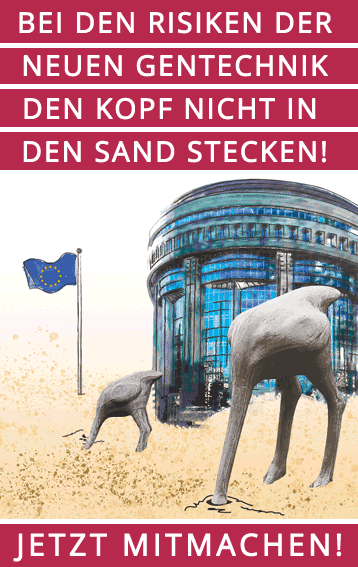
The history of the tobacco industry is a good example of the consequences that a lack of independent experts and authorities can have. Only a few years ago, many recognised scientists in Germany and elsewhere saw no problem in accepting research funds from industry, or in being invited to the industry's conferences while at the same time acting as independent experts. As a consequence, the health impacts of smoking were denied successfully for decades.
In the last few years, a number of studies have shown substantial conflicts of interest within European and German regulatory authorities in the area of biotechnology and genetic engineering. A serious lack of independence has been shown in several cases. The European Food Safety Authority EFSA is affected by these problems, as are other German authorities such as the Federal Office for Risk Assessment, BfR.
EU member states have also failed to systematically promote industry-independent expertise in biotechnology. There are several reasons: National governments as well as the EU Commission are much more focused on the promotion of innovation and competitiveness than on independent risk research. More and more university research projects are funded by industry. Additionally, scientists committed to a more critical approach often experience personal attacks. Companies can even prevent researchers from publishing results which are considered undesirable. To make things even more difficult, scientists who need access to patented plants and reference materials necessary for their research may have to sign an agreement stating that the publication of the results must first be approved by the company.




